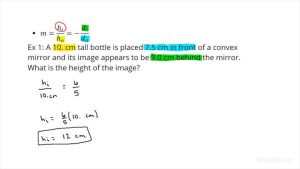I’m sure you’re exploring ways on how to get an A in physics. Now then, physics is all about understanding the concepts, practicing problem solving and staying organized. What’s more you need to stay on top of assignments and lab work.
Buckle up as this study guide could be all that you have been looking for to excel in the subject.
Step 1: Focus without distraction
First things first, make sure you get to understand the basic principles of physics including mechanics, thermodynamics, electromagnetism, and optics. Learning the basics of physics will ensure that you have a smooth sailing ahead.
What’s more, you need to read your textbook, take clear notes and do everything that will help you memorise the important concepts and formulas.
Importantly, don’t shy from using real-world examples or relatable scenerios to assist you understand the concepts. For instance, if you are learning about energy, visualize how it applies to your favourite rollercoaster.
In the same vein, practice solving problems related to these concepts to hone your problem-solving skills. You need to practice solving physics problems to build your thinking muscle.
Step 2: Make a plan
This is about setting aside dedicated time to study physics. Create a schedule that includes time for reviewing notes, solving problems, and reviewing past exams. Importantly, stick to it and you’ll realise results.
Bonus tip: Experiment with studying at different times of the day to see what works best for you. Some people may prefer morning hours while others are night owls.
Step 3: Take advantage of all resources at your disposal
In todays world, information is a click away and all you need is an earnest desire to learn. Use textbooks, online resources, and videos to supplement your learning. There are also tons of online problem sets and practice tests that can help you improve your problem-solving skills.
Don’t shy from asking for help in case you find that you’re having a hard time grasping a concept. But don’t over rely on your teachers, ensure you put in the work too.
Step 4: Practice, practice, practice
Practice might not be the most exciting thing but it will make you strong to the finish. Solve a diverse set of questions as you ready for exams.
By the same scale, don’t beat yourself up if you make a mistake. But try and learn from your error and do better next time.
Step 5: Keep things organized
It should not be hassle to find your notes and class materials. This will make your studying more efficient.
Step 6: Stay motivated
Always focus on the other side of success even whenever you encounter mind-boggling problems that appear impossible to solve. Set goals for yourself, track and celebrate even your small progresses.
Just keep in mind that, physics though tough, can be conquered with hard work and dedication.
Step 7: Get extra help
Sometimes, things get tough and you need people to walk the road with you. How about attending physics study lessons or finding a study group to help you stay on track.

Step 8: Take care of yourself
Physics demands a lot of deep and smart thinking. Therefore ensure you eat a balanced diet, get enough sleep and exercise. And don’t forget to find a balance between your school work and other activities.
Step 9: Apply the concepts
It is Leonardo da Vinci that said: “Knowing is not enough, we must apply. Being willing is not enough; we must do.”
In a nutshell, try to apply the concepts you learn to solve real-world problems.
Step 10: Participate by asking questions in class
Ask questions and participate in class discussions to help you better understand and get different perspective on the concepts.
Don’t shy from asking for help or to admit that you don’t understand something.
What’s more, you can revisit the concepts with members of your study circle to ensure they stick in your mind.
Step 11: Experiment with the concepts
Physics is all about experimenting and testing theories. Try to conduct experiments on your own or with your classmates. This will help you cement the concepts better and you will be able to apply them in a more practical way.
Step 12: Make connections
Strive to make connections between the different physics concepts you’re learning. For instance, if you’re studying mechanics, try to see how it relates to thermodynamics. Making connections like this will not only help you understand the material more deeply but might just stir invention.
Step 13: Don’t be afraid to make mistakes
A person who is afraid of making mistakes may not be an effective learner as making mistakes is a natural part of the learning process. However, the most important thing is to learn from the mistakes and strive to do better next time.
Step 14: Be prepared for the exams
Study past exam papers to have a grasp of the exam format and the type of questions that will be asked. In the same vein, practice solving exam-style questions and study your notes and past exam papers.
Step 15: Have fun with it
While physics may not be the most exciting subject, imbibing a good attitude might make the yoke appear lighter. How about infusing some humour and real-world examples in the study of the subject. This will help you to stay motivated and engaged with the material.
READ ALSO: How to Pass Mathematics with Flying Colours – An 8-Step Guide
It is now clear that it is possible to get an A in physics if one works hard at it and imbibes the right attitude.
Do you have a story you would like us to publish? Please reach us through info@gotta.news


















